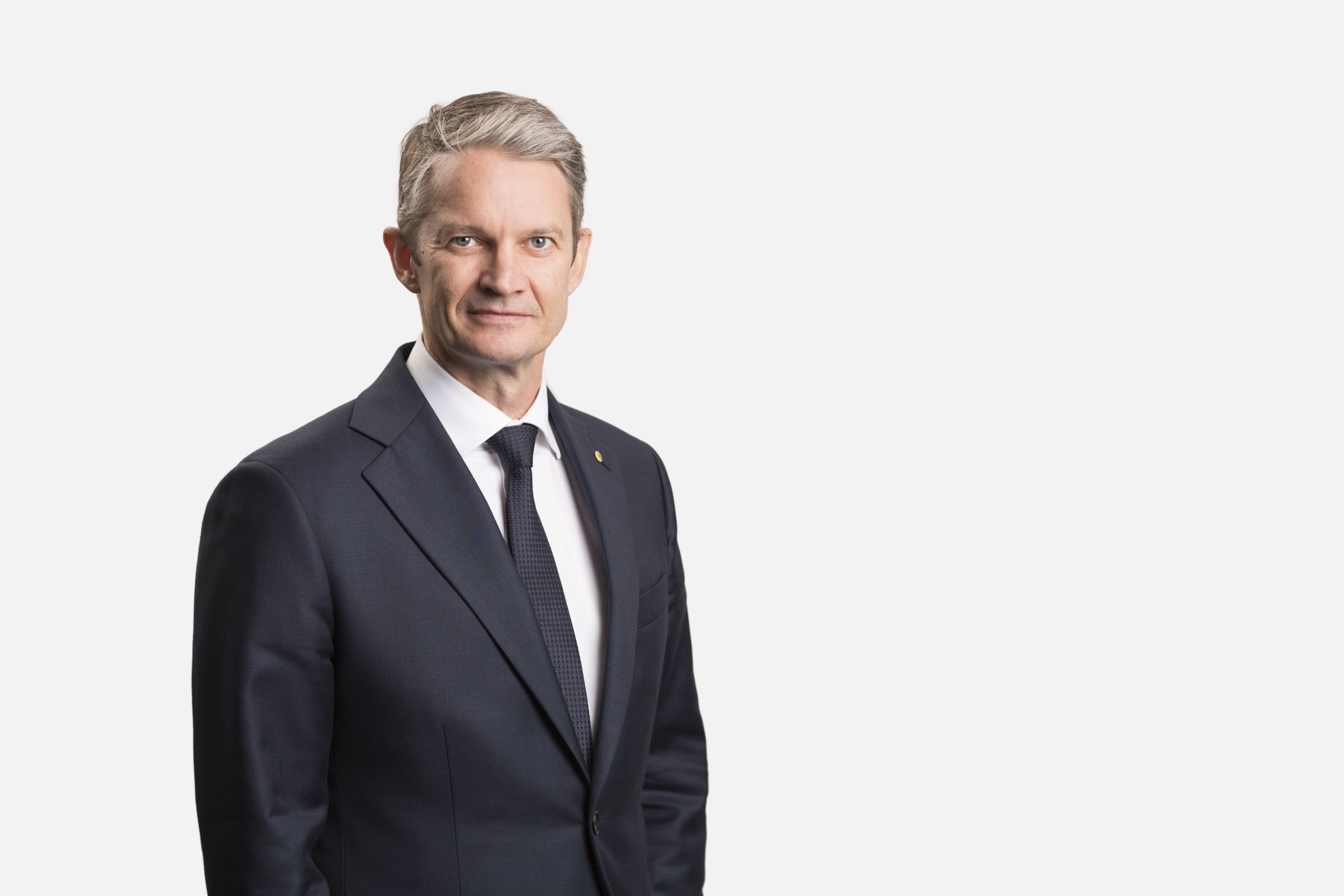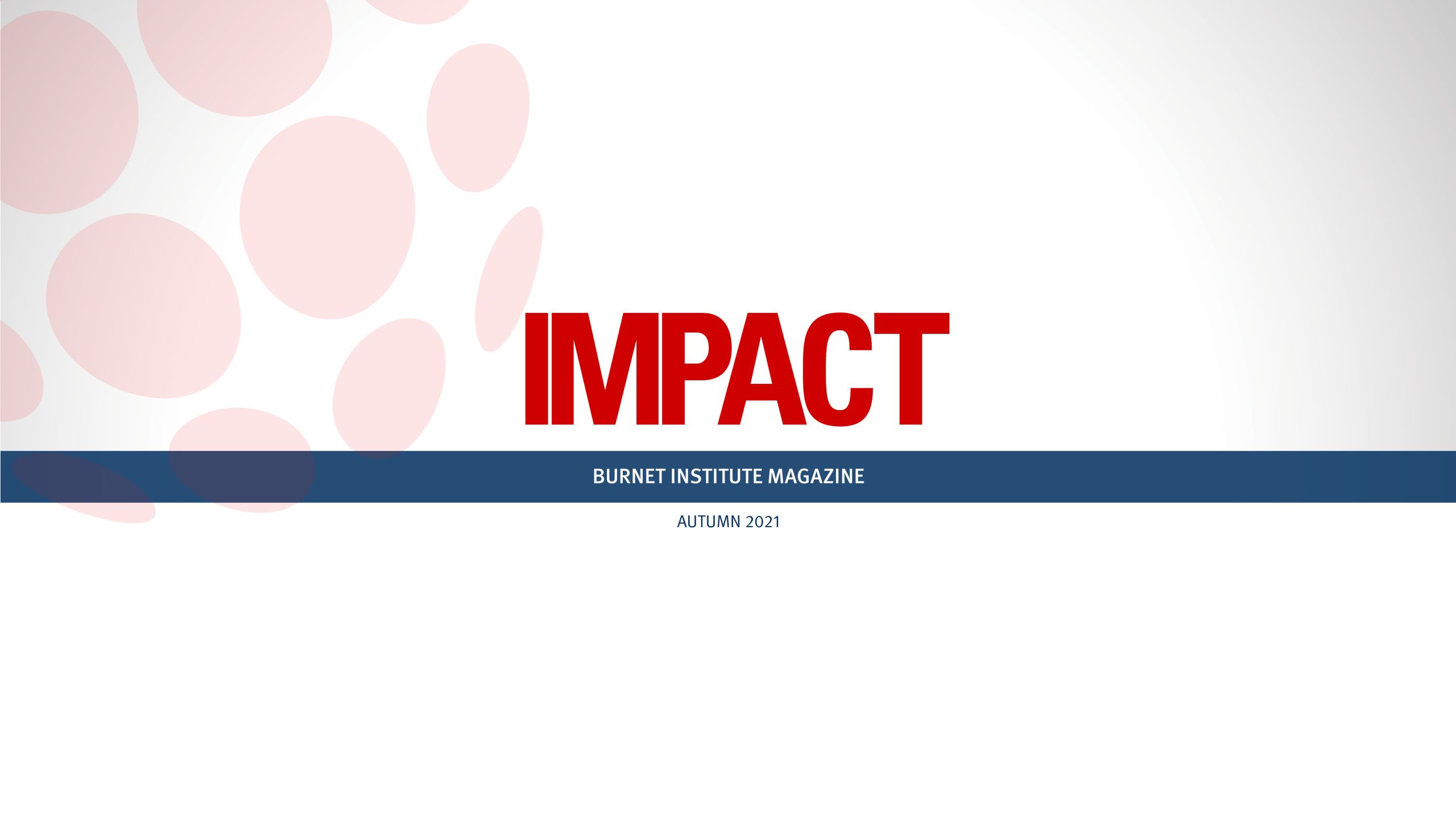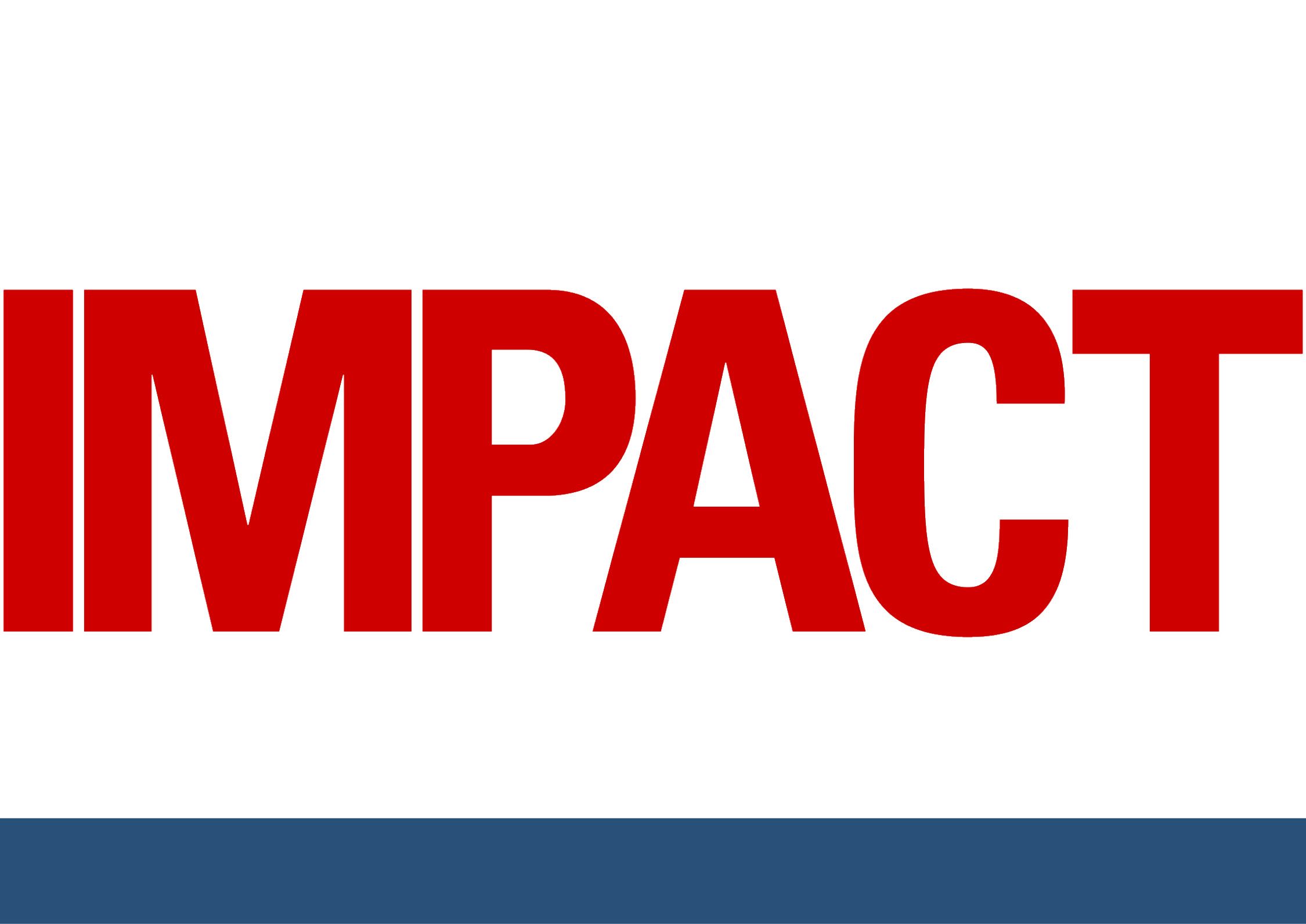
MESSAGE FROM PROFESSOR BRENDAN CRABB AC
Director and CEO, Burnet Institute

Welcome to the Autumn edition of IMPACT magazine.
When the world first faced the threat of SARS-CoV-2 (COVID-19) in 2020, it looked to science to solve it.
A globalised, highly-connected world was unprepared for an unprecedented infectious disease pandemic that would have a devastating impact on their health systems, social connections and economies.
The science community, including Burnet Institute, responded quickly, pivoting resources and their brightest minds to find answers to a very complex problem. Innovative scientific and public health research was fast-tracked, leading to the discovery of efficacious vaccines, new treatments, life-saving patient care, and new public health measures to protect communities – testing and contact tracing systems, modelling, social distancing guidelines and mask use.
From an Institute perspective, the onset of the COVID-19 pandemic required a complete reassessment of the Institute’s priorities and operations, to maximise our contribution to the local, national and international response, and ensure the safety and wellbeing of our staff.
“Undoubtedly, 2020 will be remembered as one of the most challenging in Burnet's history, but also one of our most successful. Our focus on mathematical modelling, public health responses, behavioural science, vaccines and rapid diagnostics delivered enormous value for the country and the region. But the challenge is not over.”
One year on, and while the crucial COVID-19 research work continues, we are also actively increasing our research efforts across eliminating many of the world's most devastating infectious diseases - tuberculosis (TB), malaria, viral hepatitis and HIV, and addressing other major health issues.
Recently we have highlighted our stories of impact coinciding with World Tuberculosis Day, World Malaria Day and Mother's Day. Millions of people are still inflicted every day with debilitating illnesses and diseases, unable to work or afford the necessary medical treatment to relieve their suffering. While COVID-19 has occupied the minds of us all, we cannot forget the other diseases affecting communities in our region.
At Burnet, we continue to build and strengthen our research and public health capacity to achieve better health for those most in need. Medical research has been, and will continue to be, front and centre in our approach to COVID-19 and solving the many devastating infectious diseases that still cause untold deaths and illness globally.
There is much work still to be done.
“I am incredibly thankful for the wonderful team of scientists, public health and support staff at the Institute who are so committed, and through their work are creating meaningful change and impact for those communities we serve.”
I thank you for your interest in IMPACT and encourage you to support our work, either directly by becoming a donor, or by sharing these stories of impact with your family, friends and connections.
We hope you enjoy reading our stories.
Professor Brendan Crabb AC
Director and CEO, Burnet Institute
Please support our life-saving research | Donate today

Make an Impact | Donate Today
Choose to make a gift to Burnet Institute. Every donation makes a difference to the lives of vulnerable communities where we work.
Contact Us
If you would like to discuss this edition with our team please contact Tracy Parish.
E: communications@burnet.edu.au
T: +61 3 9282 2111
Where possible people who appear in images included in this publication were photographed with their permission. There is no implication that these people have any infectious diseases.
Stay across the latest from Burnet Institute
Subscribe to IMPACT magazine today
Discover the IMPACT of Burnet’s medical research breakthroughs and public health projects in the Institute’s bi-annual magazine.
